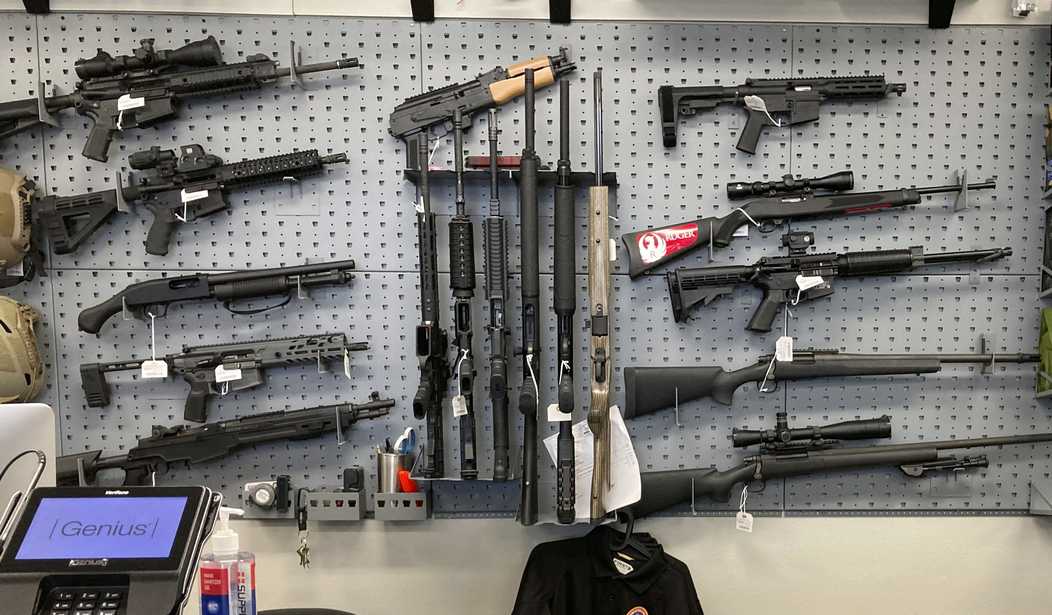A U.S. District judge has already (and rightfully) tossed out the lawsuit filed by the Obrador administration seeking to hold U.S. gun makers responsible for acts of cartel violence south of the border, but the Mexican government is hoping the First Circuit Court of Appeals will reinstate the lawsuit. Attorneys for firearms manufacturers and the government of Mexico squared off in a federal courtroom in Boston on Monday, though it’s hard to get a read on where the three-judge panel will come down when they issue their ruling.
According to the coverage from Bloomberg Law (which I’m guessing has a vested interest in covering the hearing in as positive a light as possible for the Mexican government given the anti-gun views of the company’s founder and namesake), the judges “appeared open” to the claims by the Obrador administration that gun makers are knowingly producing firearms that “can be easily modified south of the border by criminal cartels for automatic fire”, but also sounded skeptical about whether the Protection of Lawful Commerce in Arms Act allows for the kind of lawsuit that Mexico has filed.
If the US Court of Appeals for the First Circuit sides with Mexico, it could open the door to more litigation from other countries against American gunmakers.
However, judges were skeptical that gunmakers should be held liable for weapons that were later modified abroad. Rather than focusing on Mexico’s broader argument about the legal shield, the judges bored in on the question of whether an exception for knowing violations of state or federal laws is applicable here.
That exception would give Mexico an avenue to pursue its claims even if the court finds federal immunity law applies.
“If you violate federal gun laws you do not get protected” by the liability shield, said Jonathan Lowy, president of Global Action on Gun Violence, who represents Mexico.
Judge William Kayatta asked Lowy, “what then is the cause of action that would involve the manufacturer knowingly violating” the law. Lowy responded that the cause of action is the manufacturers allegedly aiding and abetting unlicensed weapons, as well as allegedly designing semi-automatic weapons that can be easily modified to shoot automatically.
Note that last line, because it’s a critically important piece of the anti-gunner’s attempts to ban semi-automatic firearms. For a couple of years now attorneys with gun control groups like Brady (where Lowy used to work) have been arguing in various civil lawsuitsi that semi-automatic firearms are inherently “readily converted” into machine guns, and therefore should already fall under the auspices of the National Firearms Act. So far they’ve yet to convince a court to adopt their position, but if Mexico’s government gets its way then commonly-owned semi-automatic firearms, including the vast majority of handguns available for sale in the United States, would be dramatically restricted if not prohibited outright.
“If it was not originally designed as a machine gun, it’s not a machine gun,” said Noel Francisco, a partner at Jones Day representing the manufacturers. Francisco served as US Solicitor General in the Trump administration.
Embracing Mexico’s view of convertible semi-automatic weapons would make the federal government “derelict in its duty” to regulate machine guns in the US, Francisco said.
The gun control lobby would be just fine with that outcome, though it could turn tens of millions of lawful gun owners into criminals overnight and upend nearly a century of federal gun regulations. In fact, with a divided Congress unwilling to pass a semi-auto ban and the Biden administration so far reluctant to adopt the anti-gunners point of view that semi-autos can be restricted by executive fiat, the courts are the best chance prohibitionists have of enacting a ban.
In this particular case, the trial court judge threw out Mexico’s complaint under the Protection of Lawful Commerce in Arms Act, and unless the First Circuit panel decides to engage in some judicial activism that should be the same outcome when the three judges issue their decision. While Mexican cartels are most certainly trafficking in U.S. arms as well as exporting their illicit drugs north of the border, the cartels are also looking to Mexico’s southern border to smuggle in weapons, and in some cases are acquiring guns from corrupt officials within the Mexican military and law enforcement. The Obrador administration, meanwhile, has adopted a policy of “hugs, not bullets” when dealing with the cartels themselves; a “strategy” that has done nothing whatsoever to curb cartel violence.
It will probably be a few months before the First Circuit issues its decision, but either way this case is likely headed to the Supreme Court. The Mexican government has no reason to give up its public relations campaign against gun makers until or unless the Court turns away their lawsuit, and firearms manufacturers will undoubtably appeal any adverse ruling by the First Circuit that would obliterate their ability to do business and our right to keep and bear arms in common use.









